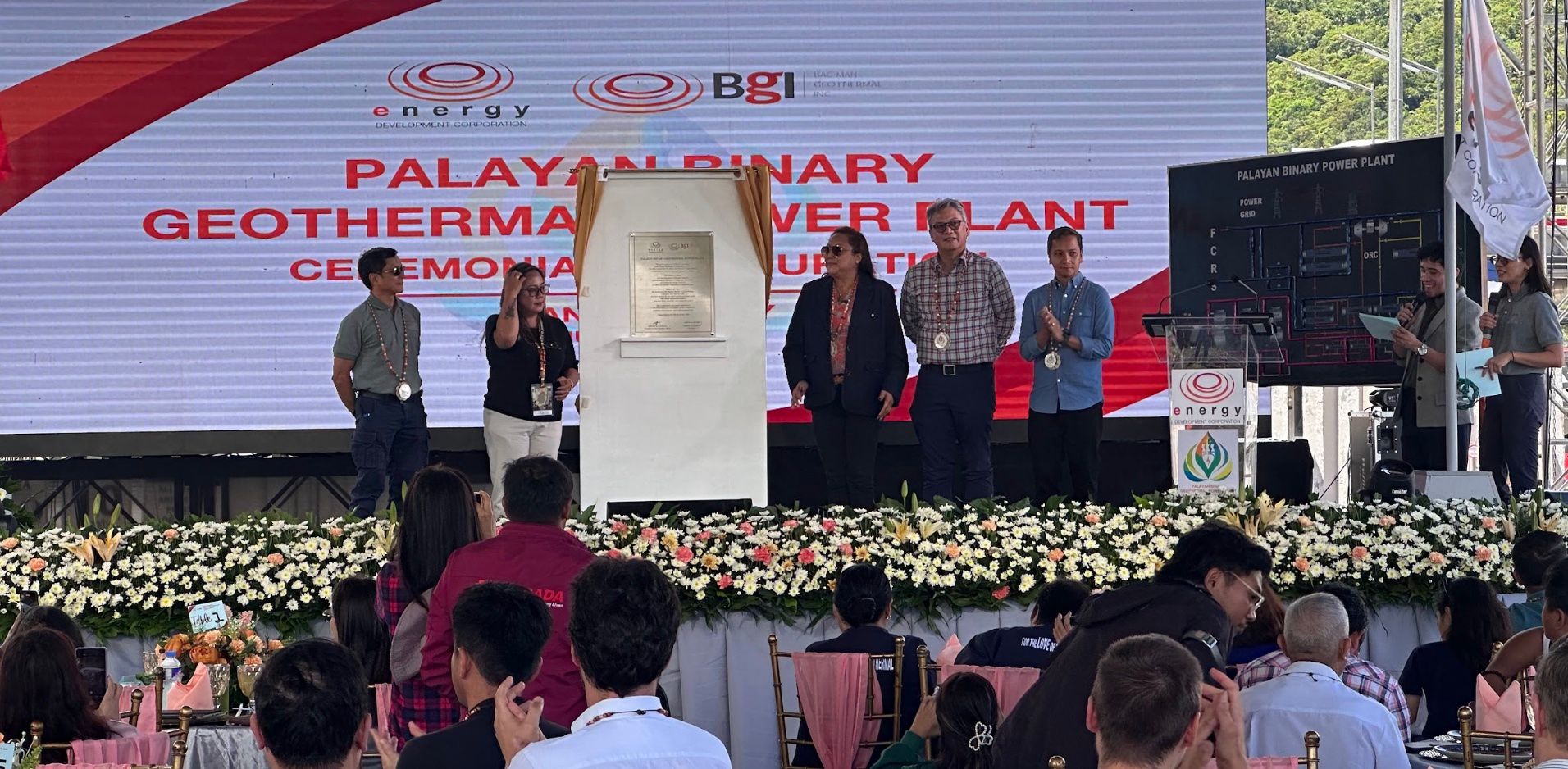EDC's P7-B Palayan binary geothermal plant to shore up Luzon power supply
At A Glance
- EDC similarly implemented three other geothermal projects during the pandemic – including the 28MW Mahanagdong binary plant in Leyte, 20MW Tanawon facility in BacMan as well as the 5.6MW Bago binary plant in Negros Occidential.<br>
The commercial operations of the P7.0 billion Palayan binary geothermal power project of Energy Development Corporation (EDC) will partly quench the energy thirst of the Luzon grid, as this will add up 28.9 megawatts into the system.
The facility serves as an expansion of its 140MW Bacon-Manito (BacMan) geothermal power plant that is sited in Albay province – the facility of which had been the company’s acquisition from state-run Power Sector Assets and Liabilities Management Corporation (PSALM) in 2010 and its capacity had been continually ramped up since then.
For the capacity shoring up, the Lopez-led firm explained that it harnessed the thermal energy of brine -- a by-product of its 120MW Palayan Bayan 1 flash geothermal facility – and with that, it was able to generate additional electricity without the need for additional steam.
“It employs a zero-discharge system that ensures brine and other fluids are efficiently re-injected into the reservoir, minimizing environmental impact,” the company added.

The ceremonial switch-on of the 28.9MW Palayan binary geothermal plant in the Bicol region.
The new facility’s synchronization to the main grid had been concretized January this year – and its gross annual generation is seen topping 253,000 megawatt-hours (MWh); while net annual generation will be 219,800MWh.
According to Jerome H. Cainglet, president and chief operating officer (COO) of EDC, the construction of the Palayan binary facility had been jumpstarted at the thick of the Covid pandemic in 2021, hence, the company considers it a monumental feat that commercial completion had been achieved in time to help beef up capacity in the supply-strained Luzon grid.
“The Palayan binary plant was able to help during the red and yellow alerts – so it helped ease supply problem in the grid,” he expounded.
EDC similarly implemented three other geothermal projects during the pandemic – including the 28MW Mahanagdong binary plant in Leyte, 20MW Tanawon facility in BacMan as well as the 5.6MW Bago binary plant in Negros Occidential.
During the Palayan plant’s construction phase, in particular, Cainglet noted that despite the challenges of the global health crisis, “we have remained steadfast in advancing these projects while prioritizing the health and safety of all our workers.”
Following the completion of the Palayan binary venture, he divulged that EDC will be on aggressive foray for the drilling of at least 25 geothermal wells this year, so the company can viably help in solving the country’s tight supply dilemmas.
“That is unprecedented for EDC because this is four times the highest number of wells we drilled in the past five years,” Cainglet stressed.
He qualified that while their next batch of investment journey could be ‘very challenging’, the company is keen on pursuing that goal so it can help provide much-needed power capacity additions in the country.
“These new power plants and drilling program are being undertaken to secure 24/7 renewable energy for our country’s journey to net zero carbon emissions,” the EDC executive said.
As calculated, the Palayan power generation facility will reduce the scale of the country’s carbon emissions by 72,200 tonnes per year.
Beyond its RE output and contribution to decarbonization, EDC also indicated that the project has positive impact to its host-communities, with the array of corporate social responsibility (CSR) projects that the company has been advancing – including those on improvement of local health services.